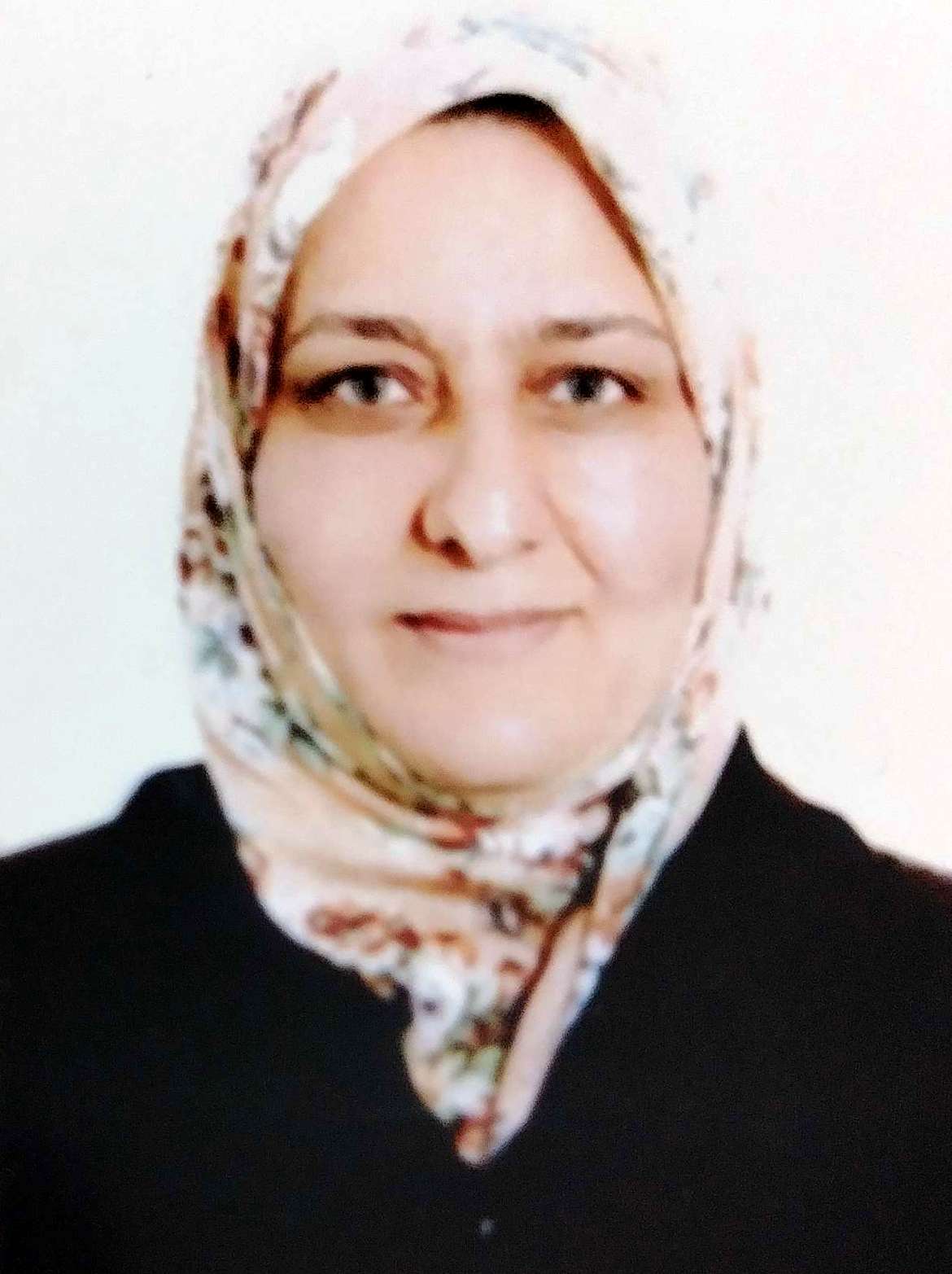
Dr. Razan Abdulhammed
Research Interests• Intrusion Detection Systems
| Gender | FEMALE |
|---|---|
| Place of Work | Technical Engineering College for Computer and AI / Mosul |
| Department | Department of Cybersecurity Engineering Techniques |
| Position | Teaching Faculty |
| Qualification | Ph.d |
| Speciality | Intrusion Detection Systems, Computer networking and Data Communication, Machine Learning, Deep learning, Data mining, Cybersecurity, IoTs, |
| Rabdulhammed@ntu.edu.iq | |
| Phone | 07702784250 |
| Address | Iraq Mosul, Nieniva, Mosul, Iraq |

Northern Technical University
1 +
Phi Kappa Phi honor Society
2 +
Upsilon Pi Epsilon. Honor Society
3 +
Peer reviewer for IEEE, Elsevier, and Tyler and Franics
Skills
Attacks and Counter Measures (90%)
Cybersecurity (85%)
Computers Network (100%)
Network Security (100%)
Internet of Things (100%)
Machine Learning (100%)
Deep Learning (90%)
Computer Engineering (100%)
Data Mining (95%)
Intrusion Detection Systems (100%)
Hardware Security (75%)
Academic Qualification
M.Sc. In Computer Engineering
Jan 9, 2001 - Jan 9, 2003Bachelor Degree in Computer Engineering
Sep 11, 1993 - Sep 1, 1997Ph.D. in Computer Science and Engineering
May 22, 2013 - Apr 26, 2019Working Experience
Cybersecurity [Head of Department for Cybersecurity and Cloud Computing Techniques Engineering]
Jul 12, 2022 - Jul 31, 2024leads the department’s academic, administrative, and strategic activities to produce skilled technical engineers in cybersecurity and cloud computing, align programs with international standards, and serve local and regional community needs.
Teaching [Assistant professor]
Aug 12, 2024 - PresentAssistant Professor in Cybersecurity Engineering teaches undergraduate and graduate courses, leads laboratory and seminar sessions, supervises student projects and theses, conducts and publishes research, and contributes to departmental and university service.
Cisco [Cisco designated instructor]
Jan 1, 2004 - Jan 16, 2013A Cisco Designated Instructor delivers authorized Cisco Networking Academy and Cisco Professional Certification courses, ensuring students gain the technical knowledge and hands‑on skills required for vendor certifications and real‑world networking roles.
Scholarships and Cultural Relations [Manager of the Cultural Relations Division]
Dec 20, 2019 - Dec 20, 2021The Manager of the Cultural Relations Division leads the Department of Scholarships and Cultural Relations to build and manage international academic partnerships, secure scholarships and fellowships for students and staff, and coordinate cultural and scientific exchange programs
Teaching [Assistant Lecturer -at Technical Education Authority - Technical Engineering College of Mosul]
Aug 27, 2003 - Oct 1, 2010An Assistant Lecturer at the Technical Engineering College of Mosul teaches undergraduate courses, leads laboratory and tutorial sessions, supports curriculum delivery and assessment, and contributes to departmental administration while developing research and professional practice.
Assistant Lecturer [Assistant Lecturer]
Aug 27, 2003 - Oct 1, 2010An Assistant Lecturer delivers undergraduate and early‑graduate teaching, supports curriculum delivery, supervises student learning activities, and contributes to academic and departmental duties while developing their own teaching and research profile.
Graduate Study [M.SC Student]
Sep 12, 2000 - Sep 27, 2003An M.Sc. student in Computer Engineering is primarily a graduate researcher and advanced learner responsible for acquiring specialized knowledge, conducting original research or applied projects, and contributing to the academic and technical community while meeting program requirements.
hands‑on laboratory teaching [Labs Instructor]
Sep 27, 1997 - Aug 27, 2002The Technical Engineer (Labs Instructor) is responsible for delivering hands‑on laboratory teaching in computer engineering programs, maintaining lab readiness for courses and projects, and providing technical mentorship to students. The role focuses exclusively on lab instruction and the technical operation of lab environments rather than broader systems administration or research supervision.
Lab Manager [Manager of Computer Engineering Lab]
Sep 27, 1997 - Aug 27, 2000The Manager of a Computer Engineering Laboratory ensures the lab operates safely, reliably, and efficiently to support teaching, research, and student projects. The manager combines technical stewardship, people management, administrative oversight, and academic support to maximize the lab’s availability, usefulness, and compliance with institutional policies.
Scientific Committee [Head of Scientific Commit]
Sep 1, 2025 - PresentPublications
Title Cited by Year Features dimensionality reduction approaches for machine learning based network intrusion detection
Mar 14, 2019Journal MDPI Electronic
publisher MDPI
DOI https://doi.org/10.3390/electronics8030322
Issue 3
Volume 8
The security of networked systems has become a critical universal issue that influences individuals, enterprises and governments. The rate of attacks against networked systems has increased dramatically, and the tactics used by the attackers are continuing to evolve. Intrusion detection is one of the solutions against these attacks. A common and effective approach for designing Intrusion Detection Systems (IDS) is Machine Learning. The performance of an IDS is significantly improved when the features are more discriminative and representative. This study uses two feature dimensionality reduction approaches: (i) Auto-Encoder (AE): an instance of deep learning, for dimensionality reduction, and (ii) Principle Component Analysis (PCA). The resulting low-dimensional features from both techniques are then used to build various classifiers such as Random Forest (RF), Bayesian Network, Linear Discriminant Analysis (LDA) and Quadratic Discriminant Analysis (QDA) for designing an IDS. The experimental findings with low-dimensional features in binary and multi-class classification show better performance in terms of Detection Rate (DR), F-Measure, False Alarm Rate (FAR), and Accuracy. This research effort is able to reduce the CICIDS2017 dataset’s feature dimensions from 81 to 10, while maintaining a high accuracy of 99.6% in multi-class and binary classification. Furthermore, in this paper, we propose a Multi-Class Combined performance metric 𝐶𝑜𝑚𝑏𝑖𝑛𝑒𝑑𝑀𝑐 with respect to class distribution to compare various multi-class and binary classification systems through incorporating FAR, DR, Accuracy, and class distribution parameters. In addition, we developed a uniform distribution based balancing approach to handle the imbalanced distribution of the minority class instances in the CICIDS2017 network intrusion datase
Conferences
international Symposium on Networks, Computers and Communications (ISNCC)
Jan 9, 2025 - Mar 9, 2025Country IQ
Location Iraq









